Search Results
Showing results 821 to 840 of 1480

Air Cannon
Source Institutions
In this activity (page 1 of PDF under SciGirls Activity: Forecasting), learners will construct an air cannon by cutting a hole in the bottom of a bucket and stretching a garbage bag over the other end

Super Memory
Source Institutions
In this activity (pages 26-29 of the PDF), learners investigate how they can develop super memories by using mnemonic devices.
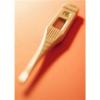
The Ups and Downs of Body Temperature
Source Institutions
In this activity (1st on the page), learners explore circadian rhythms by keeping track of their body temperature.
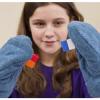
Mitten Challenge
Source Institutions
In this activity, learners try to put together toy bricks—wearing oven mitts on their hands! This activity shows learners how difficult it is to build small things when your tools are too big.

You're Grounded
Source Institutions
In this engineering activity, learners test the stability of towers they build out of cups, discovering that structures with more mass in the base are more stable.

Can Crushers
Source Institutions
In this activity, learners conduct an experiment by heating an aluminum can filled with water to investigate air pressure.

Illuminating Luminescence
Source Institutions
In this activity, learners compare and contrast different forms of luminescence by observing how chemiluminescence, phosphorescence, and fluorescence produce or emit light.

Ice Cream
Source Institutions
In this chemistry activity, learners use the lowered freezing point of water to chill another mixture (ice cream) to the solid state.
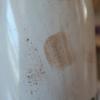
Dusting For Fingerprints
Source Institutions
In this activity, learners become detectives and use chemistry to investigate fingerprints.
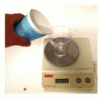
Toast a Mole!
Source Institutions
In this quick activity, learners drink Avogadro's number worth of molecules - 6.02x10^23 molecules!
Guiding Light
Source Institutions
In this optics activity, learners use glass and water to demonstrate total internal reflection (TIR).
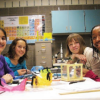
House Warming
Source Institutions
In this physical sciences activity, learners explore how passive solar design increases energy efficiency.
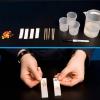
Candy Chromatography
Source Institutions
Learners analyze candy-coated sweets using chromatography. Learners use this method to separate the various dyes used to make colored candy.
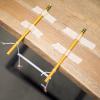
Coupled Resonant Pendulums 2
Source Institutions
Create a simple dual pendulum and get them to swing in identical ways. This is a simple, low cost, activity produced by the Exploratorium.
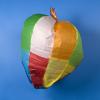
Fly a Hot-Air Balloon
Source Institutions
Learners assemble a hot-air balloon from tissue paper. The heated air (from a heat gun) inside the balloon is less dense than the surrounding air and causes the balloon to float.
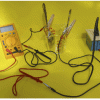
Cake by Conduction
Source Institutions
In this demonstration, cook a cake using the heat produced when the cake batter conducts an electric current.
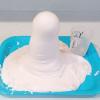
DIY Elephant Toothpaste
Source Institutions
In this activity, learners will experiment with catalysts to create an at-home version of elephant toothpaste.
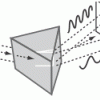
Rainbow in the Room
Source Institutions
This activity generates learner excitement about light through the creation of a room-sized rainbow.

Origami Flying Disk
Source Institutions
In this three-part activity, learners use paper to explore Bernoulli's Principle — fast-moving air has lower pressure than non-moving air.
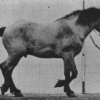
Horse Gaits Flipbooks
Source Institutions
In this activity, learners explore the gait of horses by constructing flipbooks with British photographer Eadweard Muybridge's famous photographs.
